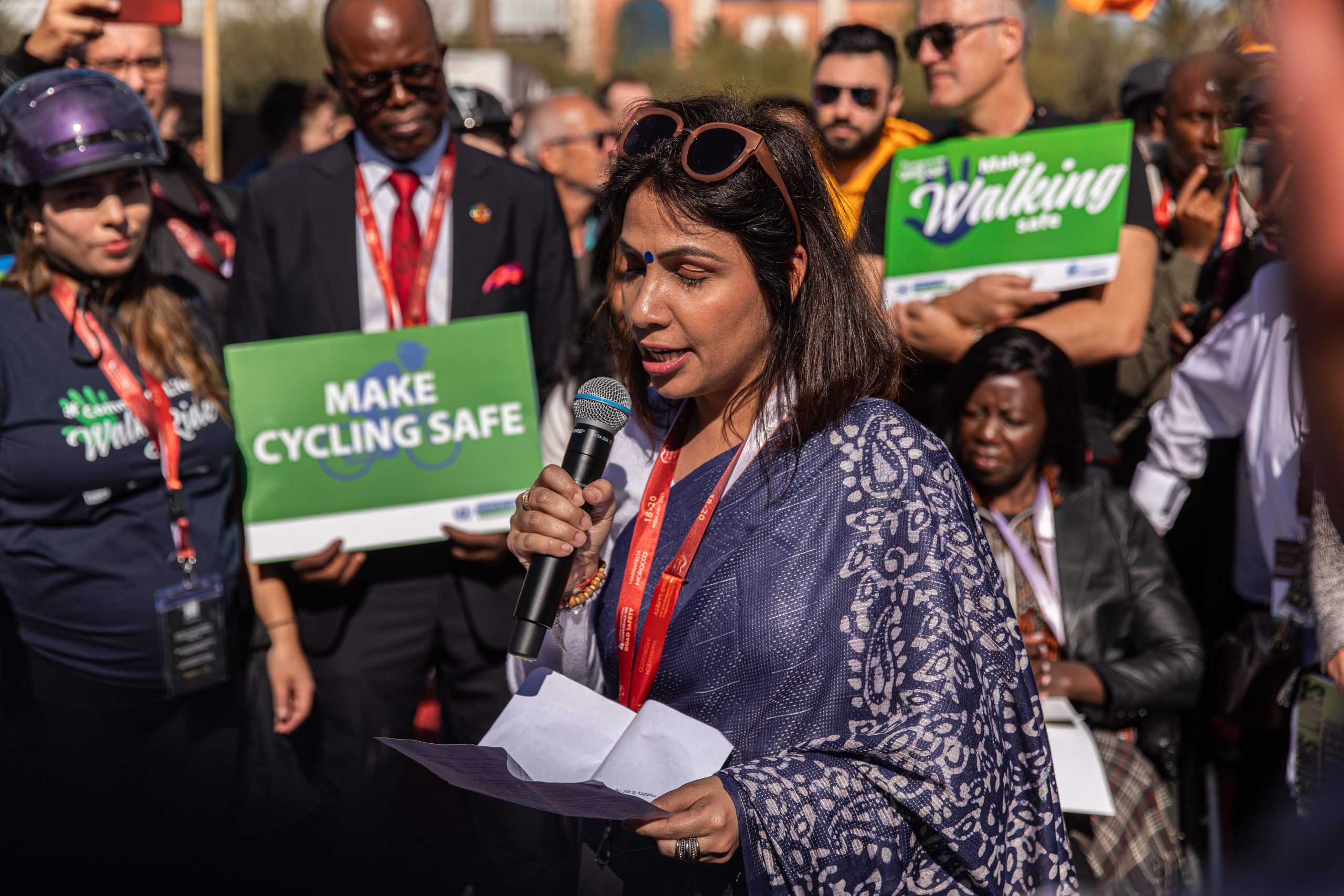
The Global Plan for the Decade of Action for Road Safety 2021–2030 (Global Plan) sets out a clear role for NGOs: to be advocates and independent voices that influence social change, strengthen the evidence base, bring community perspectives to the table, keep road safety on the government agenda, and hold governments accountable. The Alliance equips NGOs to fulfill this role through its three pillars: strong networks, advocacy and accountability, and capacity building.
Following the release of the Global Plan in October 2021, the Alliance amplified the critical role of NGOs in making roads safe through our paper New Deal in Road Safety: Why We Need NGOs, published in the Journal of Road Safety. It underscores the functions NGOs perform, complementing those of governments, private sector, United Nations, funders, academia and youth. Without NGO advocacy challenging the status quo, national and global actions risk becoming detached from the realities communities face, and society misses out on the progress and improvements needed for better lives and livelihoods.
The Alliance complements its global initiatives with regional efforts that strengthen NGO networks and foster collaboration. These regional efforts not only adapt global frameworks to local contexts but also ensure that regional challenges are reflected in global agendas. Our regional calls to action exemplify this. We also showcase how NGOs in different regions are advancing road safety by monitoring implementation, mobilizing communities, and ensuring that vulnerable road users are represented in policy dialogues. For example, in Asia, our op-ed Enhancing the Role of NGOs in Improving Road Safety in the Asia-Pacific Region, published in the Transport and Communications Bulletin for Asia and the Pacific by ESCAP, highlights these contributions.
The role of NGOs is echoed by our international partners. Following the Asia Pacific Regional Road Safety Conference, held 9–11 September at the Asian Development Bank headquarters in Manila and bringing together over 250 participants from governments, NGOs, the private sector, and research institutions, Britta Lang of the Global Road Safety Partnership (GRSP) reiterated: “NGOs are often the first to see where policies fail and where communities are left behind. Yet too often, they struggle to access decision makers or secure the resources they need to drive change. At GRSP, we see their resilience and impact every day, and that is why we continue to invest in building their capacity and amplifying their voices. Their stories and successes inspire others and remind us that road safety is not just about statistics but about people’s lives.”
Following the session Shaping Safer Roads Together: Civil Society, Investment, and the Road to 2030 at the Conference, Mei Ling Tan of Bridgestone Asia Pacific emphasizes: “Partnership with NGOs is valuable in achieving global road safety and sustainability goals. Their involvement is crucial for grounding solutions in local realities by leveraging community trust and accountability. Collaborative efforts with NGOs, though often facing challenges and scepticism, can significantly contribute to policy changes and positive impacts on road safety, ultimately saving lives.”
NGOs are not peripheral actors; they are key drivers of the global road safety movement, exposing the absence of evidence-based interventions, instigating government actions that save lives and reduce injuries, turning government commitments to implementation, and promoting successful implementation for scaled implementation. The Alliance is equipping NGOs with practical tools such as the Mobility Snapshots, the Accountability Toolkit, the white paper on Making Safe Helmets a Reality for All and the helmet test results. By investing in and empowering NGOs, we get closer to the targets of the Global Plan and Sustainable Development Goals.